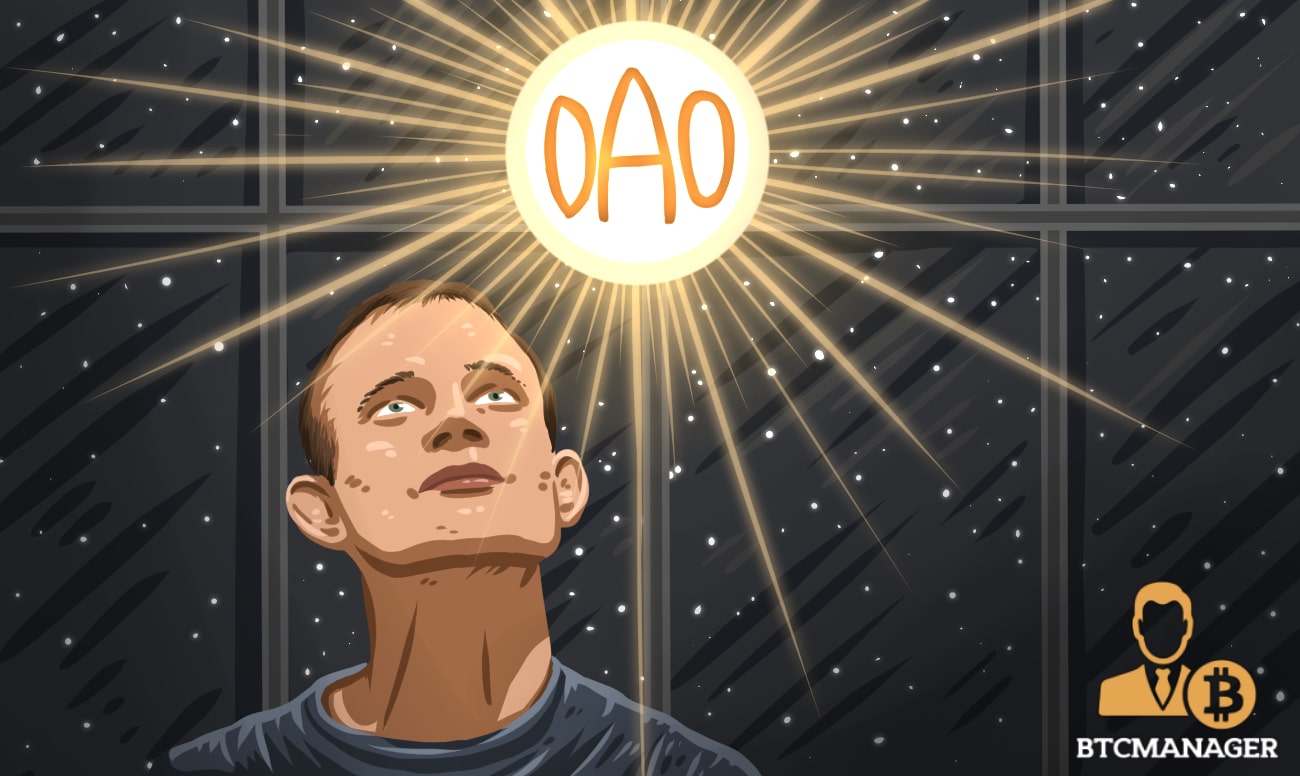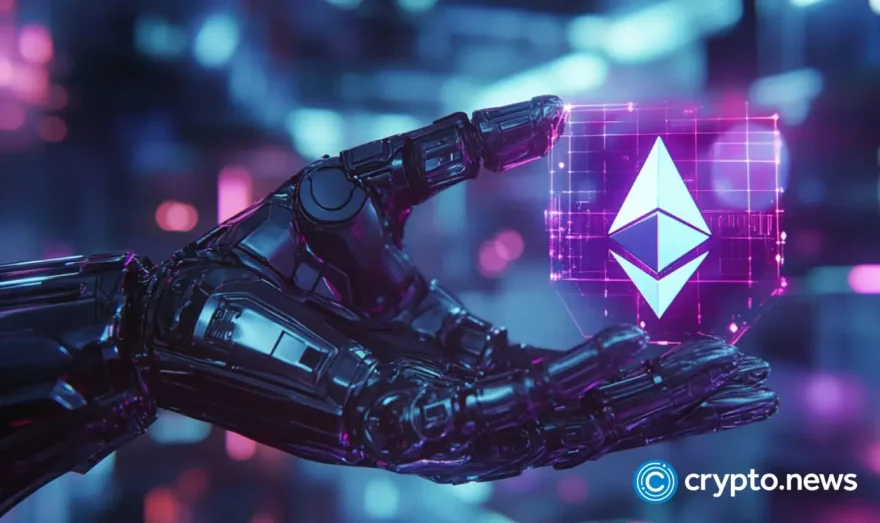Vitalik’s Seven Deadly Crypto Sins: The Future Is DAO

In the following series, BTCManager will be walking through, in detail, seven questions posed by the co-creator of Ethereum. These seven questions are some of the most relevant features of this booming ecosystem. From governance, as in this week’s installment, to mining and everything in between. The series was inspired by a discussion between Buterin and a WeChat group.
To get started, have a look at the first installment related to Bitmain’s move to centralization and the threat of 51 percent attacks.
Governing Time
When science fiction writers visualize the future, their visions of how we will be governed ranges from utopian, as described by H.G. Wells in The Time Machine to dystopian as described by George Orwell in 1984. Throughout human history, there has been a need for governance to resolve our many conflicts more equitably. When projecting our society and its’ ills forward through time, science fiction writers will describe compelling arguments that make us reflect upon these desires.
Every science fiction author that describes a future society governed by computers has usually painted a very dire picture. Most famously, the Wachowski’s story of the Matrix allowed humans to live in a dream world as their bodies powered the machines. In Terminator, humans were all but eradicated by sentient machines.
In every story, the reader or viewer is cautioned against allowing machines to be the ultimate authority over conflicts.
Close Encounters of the Autonomous Kind
In our 21st century, reality is often stranger than fiction. None of these authors or moviemakers could have imagined a future wherein decisions could be made autonomously by an algorithm such as the one that drives blockchain technology. The first indication of this kind of logic was made apparent by Bitcoin’s automatically adjusting difficulty algorithm.
The math behind Bitcoin is such that blocks should be mined every ten minutes. However, a more powerful computer can be invented that would then be able to craft solutions to that problem much faster. This would lead to blocks that are mined in a faster interval of time. To counter this, Satoshi Nakamoto included a self-adjusting algorithm that would cause the difficulty to increase automatically. All on its’ own, the Bitcoin algorithm automatically adjusts without any inputs from any human.
In the further development of the blockchain software, the Ethereum team transformed this concept into “Distributed Applications” or “dApps.” These algorithms can make certain independent decisions while still running on the blockchain.
The evolution of this concept is to have an entirely Distributed Autonomous Organization (DAO) on the blockchain that would govern itself. Dash was the first CryptoCurrency to be created wherein the stakeholders of the currency directly participate in the future direction of the currency. By running a Masternode, stakeholders are allowed to vote on proposed changes to the currency or to decide on investments by the currency.
The Day the EOS Stood Still
The latest implementation of a DAO blockchain is EOS. One of the main autonomous decisions is the decision as to which stakeholder will be one of the 21 block producers. Each stakeholder of EOS can vote to decide who will be a block producer who then share in the EOS rewards for mining.
The obvious issue here is when an organization like Bitmain can easily acquire 15 percent of all the tokens and vote for themselves to be one of the 21 block producers. Given the economic power that they had, they quickly placed themselves into a position to earn approximately $2.7 million a year.
In another case, all 21 producers voted unanimously to freeze out transactions from seven addresses. Many in the community widely scorned this action. Among those protesting was Charlie Shrem in a tweet:
“‘Protecting’ ‘punishing.’ No. No one gets to decide those things. You are hair swapping 1 nation state for another one, albeit a digital one. This is the point of crypto, no one should have that power. If you do, then we should just stop wasting everyone’s time.”
Printing more EOS tokens was also accomplished by the largest EOS stakeholders as well. Even though this was done for a technical reason, the power that is apparent behind this gives a lot of reason for concern. In light of this, Vitalik Buterin asks:
“Given how EOS governance has turned into an epic fail, doesn’t this mean that all on-chain governance including DAOs is fundamentally flawed? How can any DAO deal with bribe attacks, plutocrats, and other risks?”
Daoception
Even as some of the smartest people in the world attempt to create fair and equitable solutions, the human motivation towards capitalism drives our motives to use cryptocurrencies.
Market speculators are actively buying and selling digital currencies sometimes causing massive price swings. As evidenced by the EOS RAM market, some speculators were able to net a $600,000 profit before the price of EOS RAM dropped from $0.50 per kilobyte to $0.10 per kilobyte in just two months.
There are massive motivations for corruption and hoarding inherent in any of the larger cryptocurrencies. Any good DAO would need to be preprogrammed to eliminate or to stop these types of greed attacks. However, programming a DAO is like programming a Wu Wei-based system. Once a DAO is built, it becomes a lot more difficult to modify, and it is a lot easier to go with the flow of how it is built.
Is it possible to programmatically detect, analyze and to remove such attacks on the DAO?
Dao Ex Machina
The DAO on the Ethereum Blockchain attracted more than $100 million in investment in 2016 before a security vulnerability was exploited causing all the funds to be refunded to the original investors through a controversial hard fork. This is how Ethereum Classic (ETC) came into being. The threat of hard forks may be enough to ward off the most serious of attacks, but it is the nuclear option.
It is clear that blockchain protocols need a higher order of intelligence to govern the types of decisions that need to be made. Within the realm of computer science, this leaves us with artificial intelligence (AI). Combined with a DAO, it would make for a robust system capable of making self-sustaining decisions.
In a 2017 Forbes article discussing Decentralized Artificial Intelligence, Artur Kiulian opines:
“We can put AI at the center of the DAO, making it a de facto manager responsible for all organizational and business decisions. [Powered] by data flowing from thousands of users, and having access to resources and the ability to amass them, decentralized AIs can become a source of huge economic value for its owners.”
Trent McConaghy, the founder of the Ocean Protocol, gave a keynote presentation, discussing his ideas about “Nature 2.0.” He presents that with a high degree of integration between machines and nature, these AI and DAO based systems would have many features that are naturally resistant to attacks. For example, it would be possible to have self-owning roads:
“Furthermore, the roads themselves can be self-owning. Let’s elaborate on this one. Roads get built by taking in taxes, the government building it, and then deploying that capital. It’s about pooling capital and deploying it to usage as a public utility. So we can also pool capital into a RoadDAO that basically buys itself over time. Self-owning roads.”
These roads would then be existing on its’ own:
“It doesn’t have a concept of scarcity, it doesn’t have a concept of money even. It just is. Self-sustaining, anti-fragile.”
Alex Moskov, Editor-in-Chief of CoinCentral.com wrote a 2018 article on Blockchain with AI and whether or not AI can be trusted:
“We commonly assume that AI has access to so much information that it will inevitably be an unbiased source of truth. However, multiple studies and tests have shown that AIs take on the biases of the scientists who write their algorithms and the datasets they’re trained on.”
He goes on to discuss how an AI DAO will revolutionize our economy:
“The first AI-run billion-dollar company is on its way. More importantly, however, the AI could be written to prioritize other things besides money.”
Dao Trek
The fictional character Jean-Luc Picard as portrayed by Patrick Stewart once said:
“People are no longer obsessed with the accumulation of things. We’ve eliminated hunger, want, the need for possessions. We’ve grown out of our infancy.”
This work being undertaken by some of the brightest minds on this planet has shown that there is a path forward to evolve our human way and to create systems that are not only fair and equitable but simply amazing. There will likely be mistakes and blunders.
There may be times that everything is done right, but we may still fail. However, without this work, there is likely no better tomorrow as we stand just minutes to midnight today.















